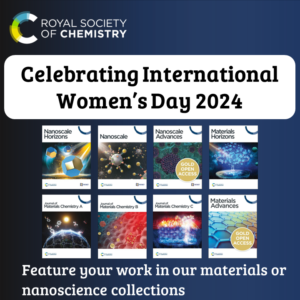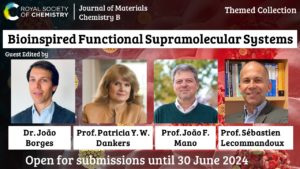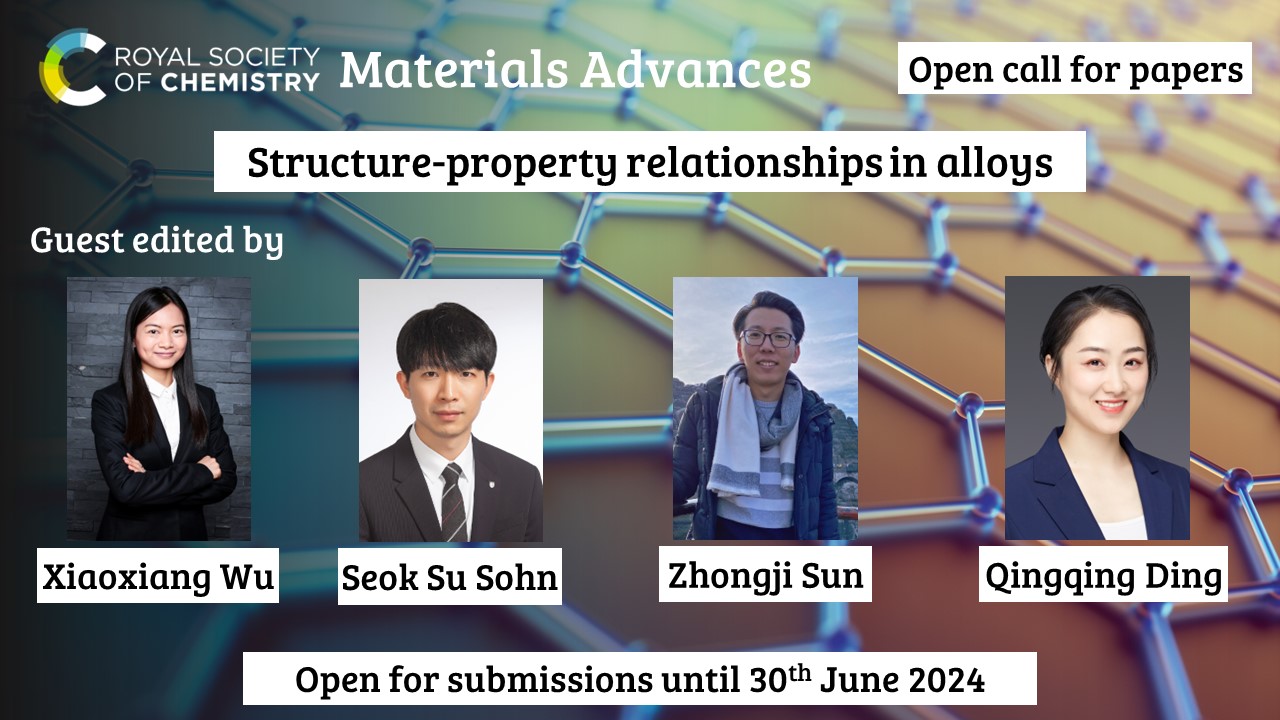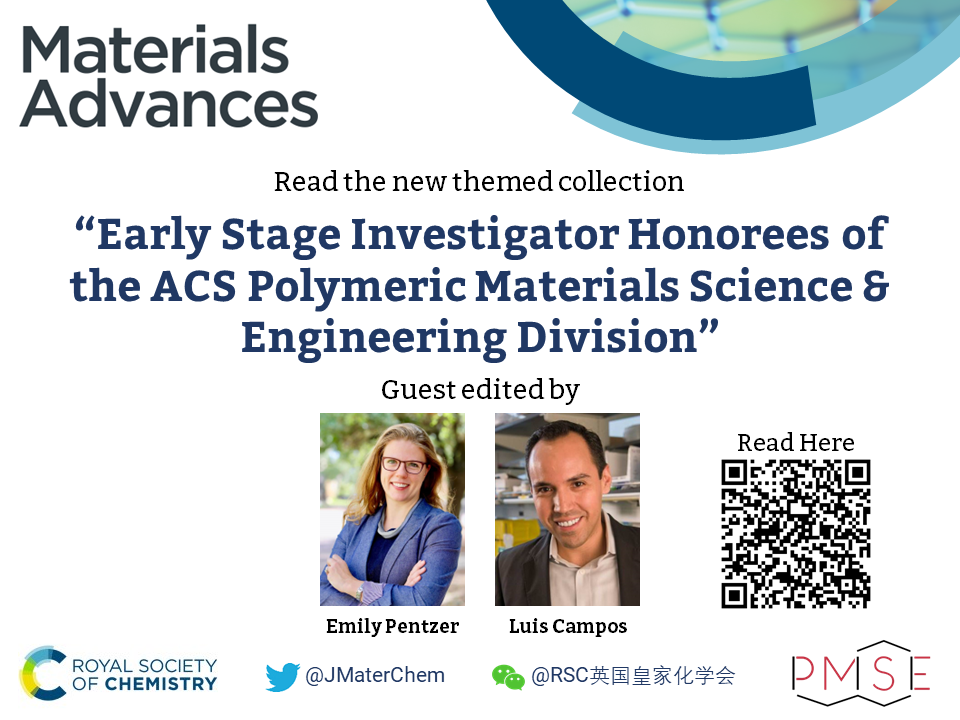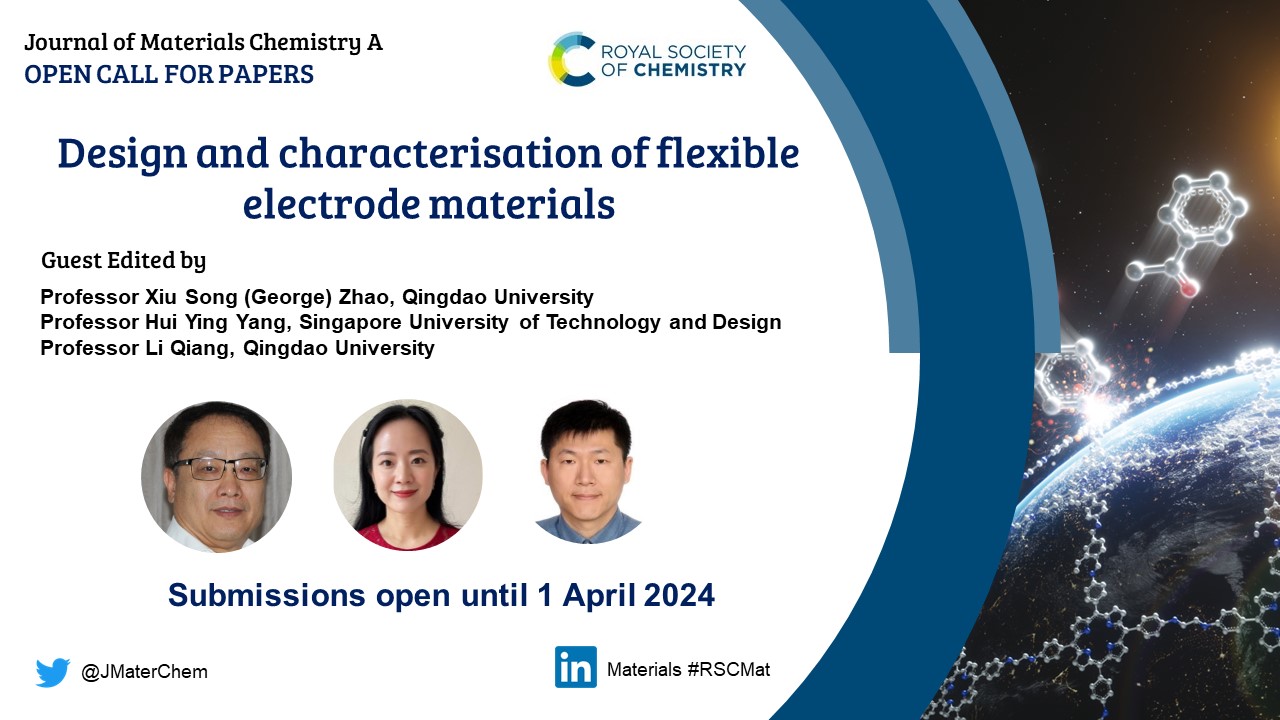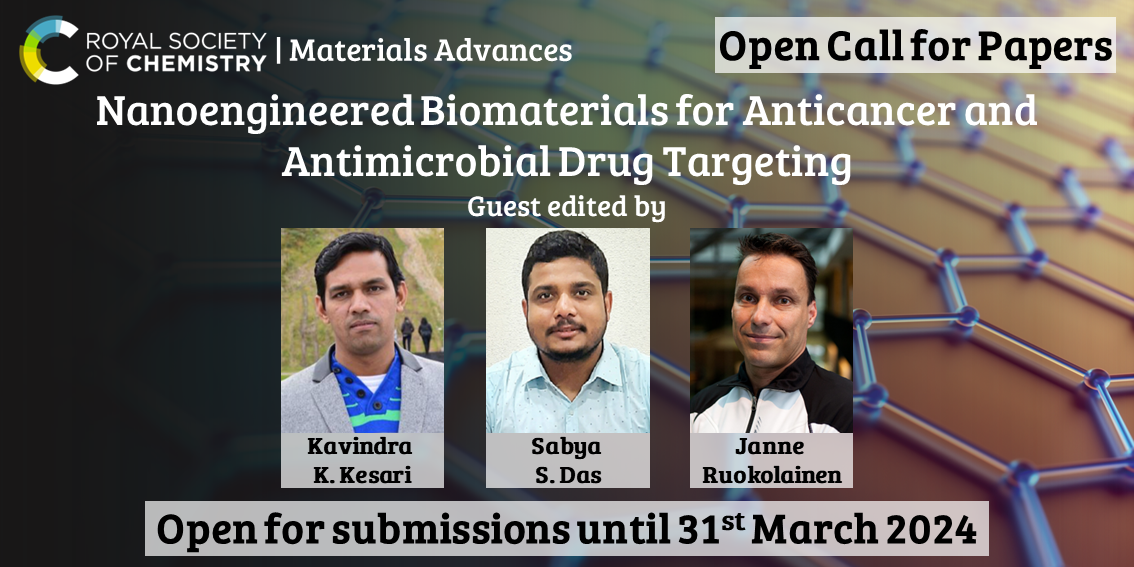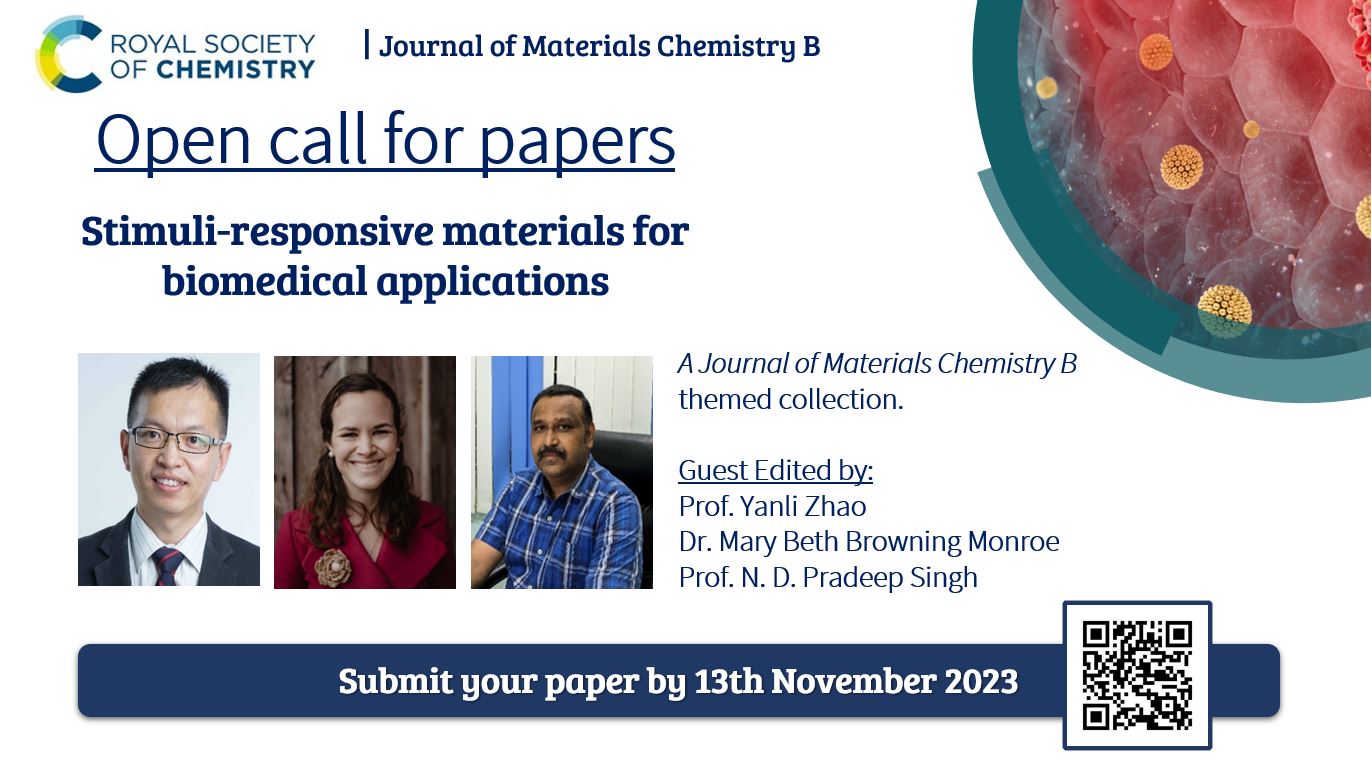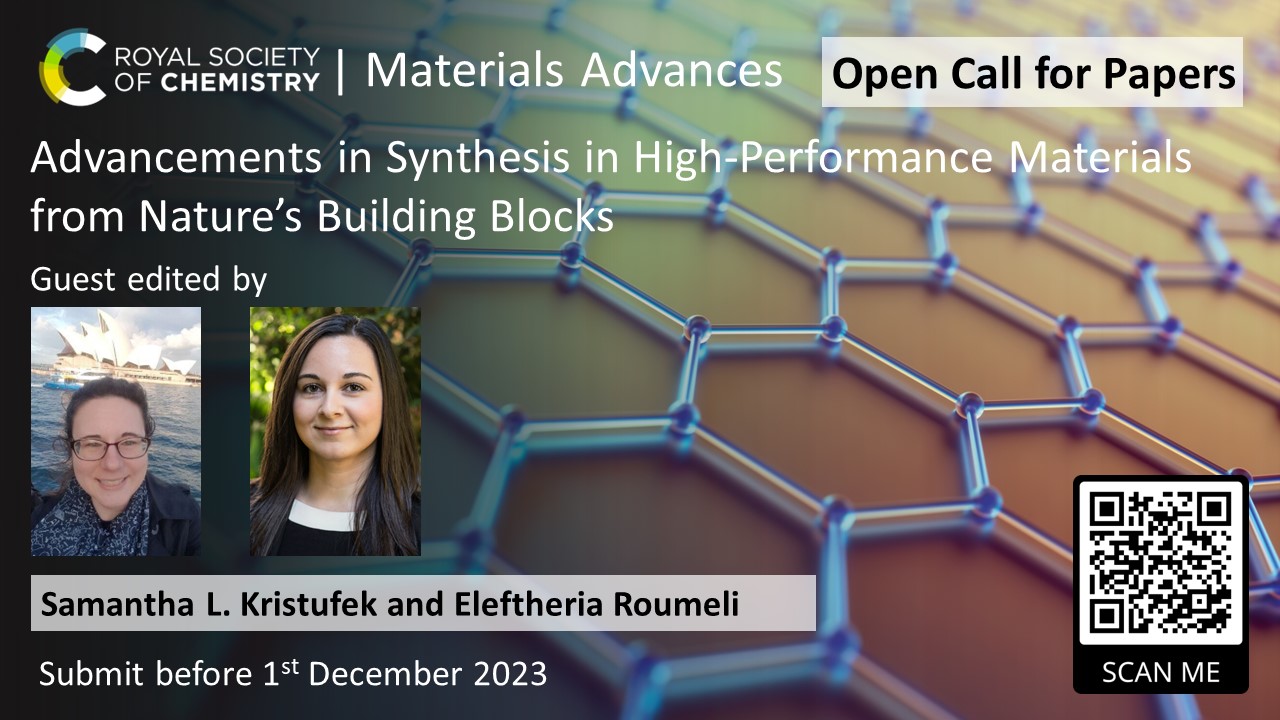Open call for papers – Nanomaterials for a sustainable future
Submit your work before 2 September 2024
Journal of Materials Chemistry A, Journal of Materials Chemistry C and Nanoscale are pleased to announce an open call for papers to a cross-journal themed collection on ‘Nanomaterials for a sustainable future: From materials to devices and systems’
This collection is being guest edited by Professor Guohua Jia (Curtin University, Australia), Professor Hongxia Wang (Queensland University of Technology, Australia), Professor Xuyong Yang (Shanghai University, China), Professor Lina Quan (Virginia Tech, USA) and Professor Yun Liu (Australian National University, Australia).
 As modern society’s demand for energy continues to grow, the development of nanomaterials for reducing energy consumption and generating and storing energy is becoming increasingly important. With advances in synthesis methods and theoretical simulations of nanomaterials, attention has turned to how nanomaterials can be rationally designed and synthesized, transformed into energy devices, and ultimately, how devices (such as solar cells, batteries, fuel cells, supercapacitors, light-emitting diodes, photodetectors etc.) can be integrated into systems to tackle real global challenges.
As modern society’s demand for energy continues to grow, the development of nanomaterials for reducing energy consumption and generating and storing energy is becoming increasingly important. With advances in synthesis methods and theoretical simulations of nanomaterials, attention has turned to how nanomaterials can be rationally designed and synthesized, transformed into energy devices, and ultimately, how devices (such as solar cells, batteries, fuel cells, supercapacitors, light-emitting diodes, photodetectors etc.) can be integrated into systems to tackle real global challenges.
Appropriate topics include, but are not limited to:
- Multifunctional materials (electrical, magnetic, electrochemical, optical, and mechanical materials, etc.)
- Quantum materials (quantum dots, 2D materials, photonics materials, etc.)
- Energy materials (materials for catalysis, CO2 reduction, batteries, hydrogen and solar energy conversion, etc.)
- Materials chemistry calculations (DFT and molecular dynamic simulation and modelling, machine learning assisted design and materials screening, etc.)
- Materials for environment (materials for environment protection, pollutants and toxic products, treatment, environmental remediation, etc.)
- Advanced characterization methods for materials (in-situ Raman, NMR, XRD; synchrotron radiation, neutron diffraction, atomic force microscopy, transmission electron microscopy, etc.)
Submissions deadline on 2 September 2024
This Journal of Materials Chemistry A, Journal of Materials Chemistry C and Nanoscale collection will capture the cutting-edge innovations in nanomaterials synthesis, simulation, device fabrication, and system integration that are driving this field forward.
How to submit
Articles can be submitted at any time before the deadline via our online submission system to any of the participating journals. Please see the journals’ webpages linked above for more information on their scope, standards, article types and author guidelines and for more information on how to submit.
For this collection, we strongly encourage primary research in the way of Full Papers or Communications. If you are interested in submitting a review-type article, please check with the Editorial Office first for pre-approval and to avoid topic overlap.
All manuscripts will undergo the normal initial assessment and peer review processes, if appropriate, in line with the journal’s high standards, managed by the journal editors. Accepted manuscripts will be added to the online collection as soon as they are published and they will be featured in a regular issue of the relevant journal and collated online into the collection. Please note that peer review or acceptance are not guaranteed.
If you would like to contribute to this themed collection, please submit your article directly through the journal submissions platform. Please quote the themed collection code XXSusFut24 when prompted in Step 4 of your submission in the “Themed issues” section of the submission form and mention that this is in response to the Open Call. The Editorial Office reserves the right to check suitability of submissions in relation to the scope of both the journal and the collection.
If you have any questions about the collection or the submissions process, please do contact the Editorial Office at materials-rsc@rsc.org and they will be able to assist.
Your institute may have a Read & Publish agreement in place with the Royal Society of Chemistry. This means that you may be able to publish gold open access for free in all the hybrid journals we publish – maximising the visibility and impact of your article to the broadest possible audience. Your institution’s agreement may already include the article processing charge for publishing as a corresponding author. Check here to find out more and to see if your institution has an R&P deal in place.
We look forward to receiving your submission!












